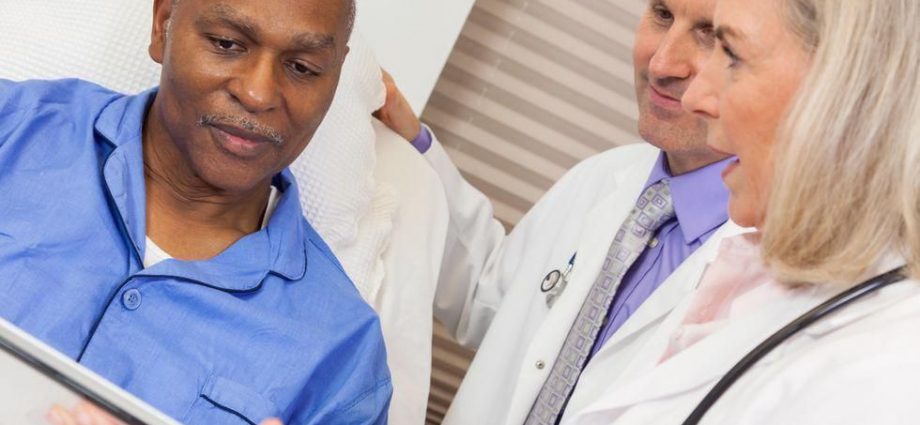TUESDAY, Aug. 17, 2021 (HealthDay News) — In a paradoxical finding, new research reveals that more Americans of color have access to health insurance now than they did 20 years ago, but their perceptions of their health status have not improved at all.
The study, published Aug. 17 in the Journal of the American Medical Association, paints a sobering picture.
In the bit of good news, researchers found that between 1999 and 2018, the percentages of Black, Hispanic and Asian Americans who lacked health insurance shrank. The decrease appeared largely related to the Affordable Care Act (also known as Obamacare), which expanded many states’ Medicaid programs.
Then there was the other side: Despite gains in health insurance, the high cost of health care remained a major problem for Americans of all races. In fact, it worsened in at least one respect: More Americans in 2018 were skipping medical care because it cost too much.
And when it came to self-reported health, minorities said they were no better off in 2018 than they were two decades ago.
“I think this is an enormous wake-up call,” said senior researcher Dr. Harlan Krumholz, a professor at Yale School of Medicine, in New Haven, Conn.
“We’re not getting a return on our investment in health care spending,” he said. “The health of the nation is not improving. And there’s been no discernible progress in closing health disparities.”
The findings are based on over 596,000 U.S. adults who took part in a periodic federal health survey between 1999 and 2018.
In 1999, low-income Black Americans were the group most likely to rate their health as “poor” or “fair,” with 29% saying so. That compared with roughly 6% of middle- to high-income white adults.
By 2018, those figures had barely budged, the study found. Similarly, there was no significant change in the percentage of Hispanic and Asian Americans who rated their health as poor to fair, regardless of income.
“In those metrics, we’re not making an iota of difference,” Krumholz said.
One change was noticeable, and went in the wrong direction: Low-income white Americans reported poorer health in 2018 than 1999 — bringing them in line with Black Americans of similar income.
It all played out while health insurance coverage actually improved. In 1999, more than one-quarter of Hispanic Americans, and 14% of both Black and Asian Americans were uninsured; by 2018, those figures had improved in all groups — though racial disparities remained.
Obamacare helped more low-income Americans get insurance by expanding Medicaid, said Alexander Ortega, a professor at Drexel University’s School of Public Health, in Philadelphia.
But, he pointed out, not all states took part in Medicaid expansion, and the ones that didn’t tended to be poorer states in the South.
Plus, Ortega said, “having health insurance is just one piece of the puzzle.”
On the financial side, health insurance does not necessarily make medical care affordable, said Ortega, who co-authored an editorial published with the study.
That was clear in the findings: In 2018, more Americans — of all races — said they’d skipped medical care or prescriptions in the past year because of costs, versus 1999. The highest rates were among low-income Black and white adults, with one-fifth to one-quarter saying they’d forgone medical care.
Even when people have insurance, Krumholz said, the monthly premiums, co-payments and other “cost-sharing” can be a financial strain.
As for people’s health ratings, the study found, racial disparities remained stubbornly persistent over time. And the number of Americans, across racial groups, reporting “functional limitations” — difficulty with routine physical tasks — rose over the years.
Good health depends on much more than health insurance, Ortega said: Having high-quality health care is key, as are the “social determinants of health.”
If people are stressed about paying the rent and bills, cannot afford healthy food and have no safe places for exercise, Ortega said, it’s tough to feel and be well.
As that all implies, there’s no easy solution, according to Krumholz. The United States pours money into medical interventions after people become sick or disabled, he noted — and that’s not improving Americans’ health.
“It’s time for a wholesale reassessment of our system,” Krumholz said.
More information
HealthCare.gov has resources for finding health insurance.
SOURCES: Harlan Krumholz, MD, professor, medicine, director, Center for Outcomes Research and Evaluation, Yale School of Medicine, New Haven, Conn.; Alexander Ortega, PhD, professor, health policy, director, Center for Population Health and Community Impact, Drexel University Dornsife School of Public Health, Philadelphia; Journal of the American Medical Association, Aug. 17, 2021, online
Copyright © 2026 HealthDay. All rights reserved.

